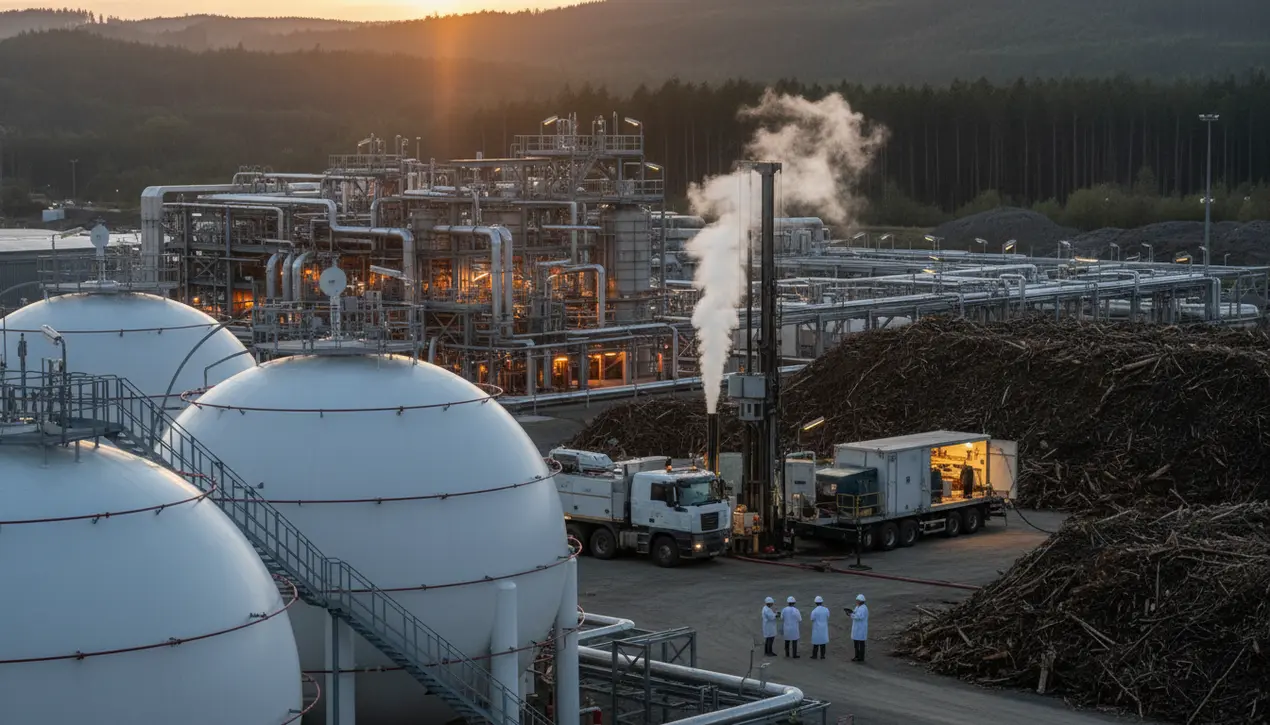
Scienceclimate scienceCO2 Emissions
Boeing partners with startup Charm Industrial to reduce carbon footprint.
RA
Rachel Adams
2 hours ago7 min read1 comments
In a move that signals a significant shift in how industrial giants are confronting the climate crisis, aerospace behemoth Boeing has forged a partnership with the bio-innovation startup Charm Industrial, a deal centered on a deceptively simple yet profoundly impactful process: converting forestry waste into a stable bio-oil for permanent subterranean sequestration. This isn't merely a corporate sustainability checkbox; it's a bold gambit in the high-stakes arena of carbon dioxide removal (CDR), a field increasingly seen as indispensable for achieving net-zero targets.The mechanics are elegantly pragmatic. Charm Industrial specializes in a rapid pyrolysis process, heating agricultural and forestry residues like slash piles and crop wastes in a low-oxygen environment.This thermochemical conversion doesn't combust the material but rather transforms it into a dense, stable bio-oil, a substance that is remarkably resistant to re-decomposition. This is the critical differentiator from simply leaving biomass to rot or burn.When plant matter decomposes naturally or is burned in controlled fires, the carbon it absorbed during its lifetime is swiftly released back into the atmosphere. By intercepting this waste stream and converting it into a more inert form, Charm effectively locks that carbon away.The subsequent step—pumping this bio-oil deep into geological storage wells—mimics the natural processes that created fossil fuels, but on a timescale of centuries, not millennia, effectively short-circuiting the carbon cycle for human benefit. For Boeing, an company whose very product is synonymous with high-altitude emissions, this partnership is a strategic masterstroke, addressing its Scope 3 emissions—the indirect footprint from its value chain—in a tangible, measurable way.The aviation industry is notoriously difficult to decarbonize; batteries are too heavy for long-haul flights, and sustainable aviation fuel (SAF) remains costly and scarce. By investing in permanent carbon removal through Charm, Boeing isn't just offsetting its emissions with uncertain forestry projects that can burn down, but is purchasing verifiable carbon credits tied to a durable process.This provides a hedge against future carbon prices and regulatory pressures, while simultaneously building a market for a technology that could be a game-changer. The context here is the urgent, unmet demand for high-quality carbon removal.The Intergovernmental Panel on Climate Change (IPCC) has stated clearly that simply reducing new emissions is no longer sufficient; we must also actively remove billions of tons of historical CO2 from the atmosphere. Current nature-based solutions, while vital, are vulnerable to reversal.Charm’s technological approach offers a complementary pathway that is quantifiable, durable, and scalable. However, challenges loom.The logistics of collecting dispersed forestry waste are immense, requiring a coordinated effort across vast land areas. The energy input for the pyrolysis and transportation must be carefully managed to ensure a net-negative carbon balance.Furthermore, the long-term monitoring and verification of the sequestered bio-oil are paramount to guarantee its permanence and prevent any potential groundwater contamination—a concern that has dogged other subsurface injection projects. Yet, the potential upside is colossal.If scaled successfully, this technology could create a new economic incentive for landowners to manage forests sustainably, reducing wildfire risk by clearing hazardous fuels while being paid for the carbon content of the waste. It represents a nascent but vital bridge between the natural world and industrial innovation, a tangible step toward healing the atmospheric damage of the industrial age.For biologists and climate activists like myself, who have long documented the fragile interplay of ecosystems, this partnership is a fascinating case study. It demonstrates that the tools to mend our planet may not lie in some distant, futuristic technology, but in harnessing and enhancing natural cycles with precision engineering, turning the very debris of nature into a shield against a warming world.
#featured
#Boeing
#carbon emissions
#Charm Industrial
#bio-oil
#carbon sequestration
#forestry waste
#sustainability
Stay Informed. Act Smarter.
Get weekly highlights, major headlines, and expert insights — then put your knowledge to work in our live prediction markets.
Comments
Loading comments...
© 2025 Outpoll Service LTD. All rights reserved.